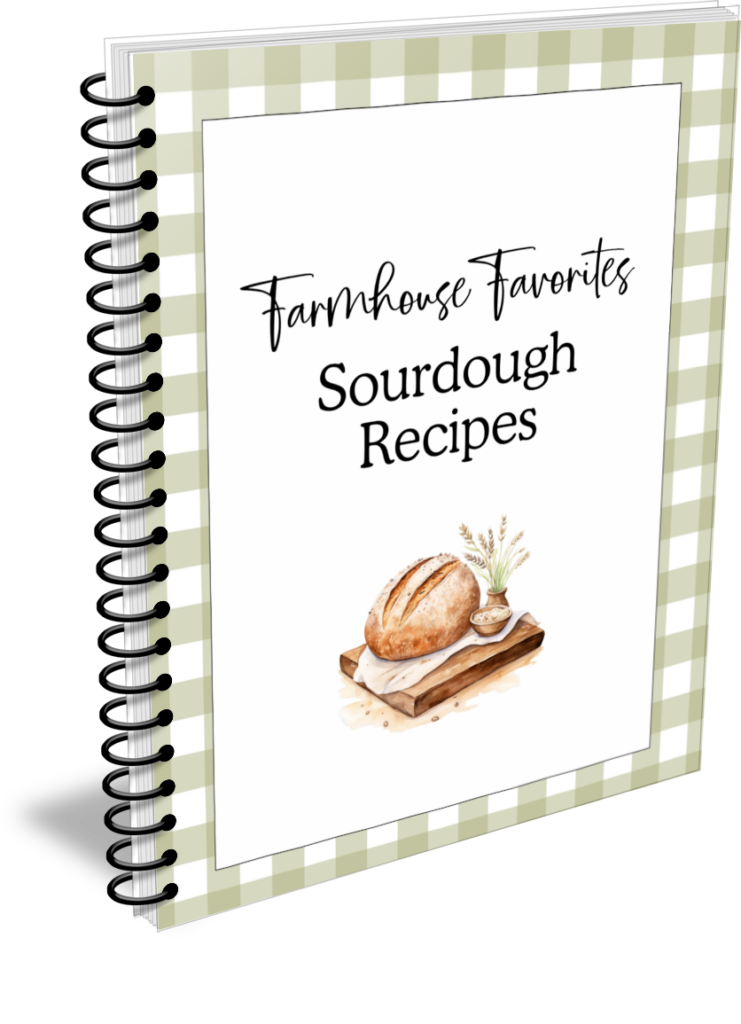How to Use Sourdough Starter in Any Recipe
Inside: how to use sourdough starter instead of yeast in any recipe by adjusting the hydration levels and allowing for longer rise times. Sourdough can be incorporated into quick breads and muffins by tweaking the leavening agents and liquid ingredients.
With a few simple tweaks, your sourdough starter can be the secret ingredient that elevates any baked treat. If you need more ways to use your sourdough starter, just adapt your favorite recipe.
Swap Sourdough for Yeast
The golden rule is to use 1 cup (8 ounces) of sourdough starter to replace 1 package (2 1/4 teaspoons) of yeast. You’ll need to adjust the liquid and flour content to maintain the right consistency. Reduce the flour by 1/2 cup and reduce the liquid by 1/2 cup.
Sourdough Sundays Newsletter

Every Sunday evening I’ll send you a sourdough recipe to make that week, straight from my kitchen to your inbox.
And as a thank you for signing up, I’ll send you this e-book with beautiful printable recipes right away. Simple!
You will not be added to any other email lists or my daily newsletter. But if you’re already on my newsletter, you’re welcome to join and receive both.

- Adjust Hydration Levels. If your starter is thicker, add more liquid to maintain the dough’s consistency. And if it’s thinner, hold back on the liquid a smidge. It’s all about finding that perfect balance!
- Plan for Longer Rise Times. Now, here’s where patience comes into play. Sourdough starters are like the tortoise in the baking race – slow and steady wins the game! They need more time to work their magic compared to commercial yeast. So, when using sourdough, be prepared to extend your rise times. Give your dough the extra TLC it deserves, and it’ll reward you with the most flavorful results!
Sourdough in Quick Breads
These recipes are a great way to get rid of sourdough discard, but the starter doesn’t typically have much of a purpose in the recipe.

You have a few options here:
- Reduce the liquid by 1/2 cup and the flour by 1/2 cup; add 1 cup of sourdough starter.
- Replace thick liquids such as sour cream or buttermilk with a sourdough starter, eyeball the dough, and adjust the liquid or flour accordingly.
- Start small; reduce liquid and flour by 1/4 cup each, and add 1/2 cup sourdough starter.
Take Notes and Learn
As you learn on your sourdough experiments, keep a baking journal to track your successes, flops, and everything in between. Jot down your adjustments, the rise times, and the results. This way, you’ll create your own sourdough recipe cookbook.
Will Sourdough Starter Make My Baked Goods Sour?
Not necessarily! The sourness of your baked goods depends on factors like the age and acidity of your starter, the fermentation time, and the recipe itself. Use a younger starter or reduce the fermentation time if you want a milder flavor. For a tangier taste, let your dough or batter ferment longer. It’s all about finding the perfect balance that suits your taste buds!
Experiment and Have Fun
It’s time to unleash your inner mad scientist and have a blast experimenting with your sourdough starter! Don’t be afraid to think outside the bread box and try using sourdough in various recipes.
Love,










